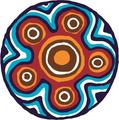Year 5 Term4 Team overview

Year 5 Term 4 Overview
We are pleased to have the students back and everyone has begun to settle back into daily school routines this term. Term 4 is a 12-week term.
Curriculum:
This term our Literacy, Numeracy and Inquiry learning are intwined. The Inquiry focus in science on ‘States of Matter’ links to the writing of explanation texts in literacy. The processes involved in completing the science investigations include specific numeracy tasks, as conducted in the kitchen during the inquiry task, as well as followed up in the classroom.
Literacy
This term’s reading maintains the focus on fluency, decoding, and comprehension to support our students’ in becoming balanced readers. Students will explore a range of explanation texts and Poetry - Limerick and Ballads (Australian). Examining the purpose, structure and language features of each text type, as well comparing and contrasting different examples of each. We will continue to focus on the different areas of comprehension - predicting, making connections, questioning, note taking, summarising, inferring, and analysing the writer’s voice, message and use of text structures and language features.
This term in writing, students will be writing explanation texts (focusing on their science learning from Inquiry) and Poetry-Limerick and Ballads (Australian). They will continue to build upon their knowledge of the writing process and use of the 6+1 writing traits, with a particular focus on learning dispositions. Students will also be focusing on organisation - writing texts that reflect the structures of explanation texts, containing either sequential or causal structures. They will also focus on word choice - using specific and accurate words linked to their topic and purpose. Students will have a specific focus on sourcing topic specific vocabulary from a variety of resources. There will be a continued focus on sentence fluency - varying sentence patterns to express ideas and engage the audience. As well as using SMART Spelling to explore different spelling patterns.
Our Home Reading program continues in Term 4. Students have access to books through our school library, and online via Reading Eggs and Wushka. If your child has misplaced their login details, please have them see their teacher. We encourage all students to borrow a book from the school library, send along a bag for them to place and protect the book. Ask your child what day their class visits the library.
Numeracy
This term, students will be focusing on the equivalence of fractions and fractions as numbers. They will conduct science and design technology tasks involving the use of fractions and chance. Students will practice connecting common fractions to decimal fractions in real world situations. They will revise and extend their knowledge and understanding of measurement by using appropriate units of measurement for length, area, volume, capacity and mass, as well as calculate perimeter and area of rectangles and volume, and capacity of rectangular prisms. Students will estimate angles and use protractors and digital technology to construct and measure angles. They will connect three-dimensional objects with their two-dimensional representations. Students will describe transformations of two-dimensional shapes and identify line and rotational symmetry. They will also pose questions to gather data and construct various displays appropriate for the data, with and without the use of digital technology. They will then compare and interpret different data sets.
Students will be applying this knowledge to real world problems as they make connections to their science and design technology learning. Students will compare and order common unit fractions, locating and representing them on a number line. As well as investigate strategies to solve problems involving the addition and subtraction of fractions with the same denominator.
We encourage students to continue using Mathletics, which is a great resource for them to practise their Maths skills while at home. If your child has misplaced their login details, please contact their classroom teacher.
Inquiry
Our focus this term is Science and Design Technologies ‘How the World Works.’ Students will follow procedures to develop questions to investigations simple cause-and-effect relationships. When planning experimental methods to conduct experiments, students will identify and justify the variables they choose to change and measure these in fair tests. They will make predictions based on previous experiences or general rules. They will identify and manage potential safety risks and make and record accurate observations as tables, diagrams or descriptions. They will be organising data into tables and graphs to identify and analyse patterns and relationships. They will then compare patterns in the data with their predictions when explaining their findings. This will then result in them making suggestions on where improvements to their experimental methods or research could improve the quality of their data. They will refer to data when they report findings and use appropriate representations and simple reports to communicate their ideas, methods, findings and explanations.
Throughout our science inquiry, students will build upon their ability to ask questions, make predictions, plan and conduct experiments, in which they will record, process, analyse, evaluate and communicate information.
S.E.L.
Throughout this term, students will continue building on our core values (Integrity, Kindness, Learning, Respect, Teamwork) and expectations (To be Safe, Respectful and Strive for Excellence). They will be listening to each other in Yarning Circles and Campfires and working in Billabongs and Caves. In SEL this term, we will be focusing on self-awareness, management recognition, expression of emotions, development of resilience, social awareness, management of relationships, diversity and collaboration.
We look forward to Term 4. Please come and see your child’s teacher if you have any questions or concerns. After school is best for a quick chat, otherwise send your child’s teacher an email to set up an appointment time for a longer chat.
Anne, Bernadette, Sarah and Steve
